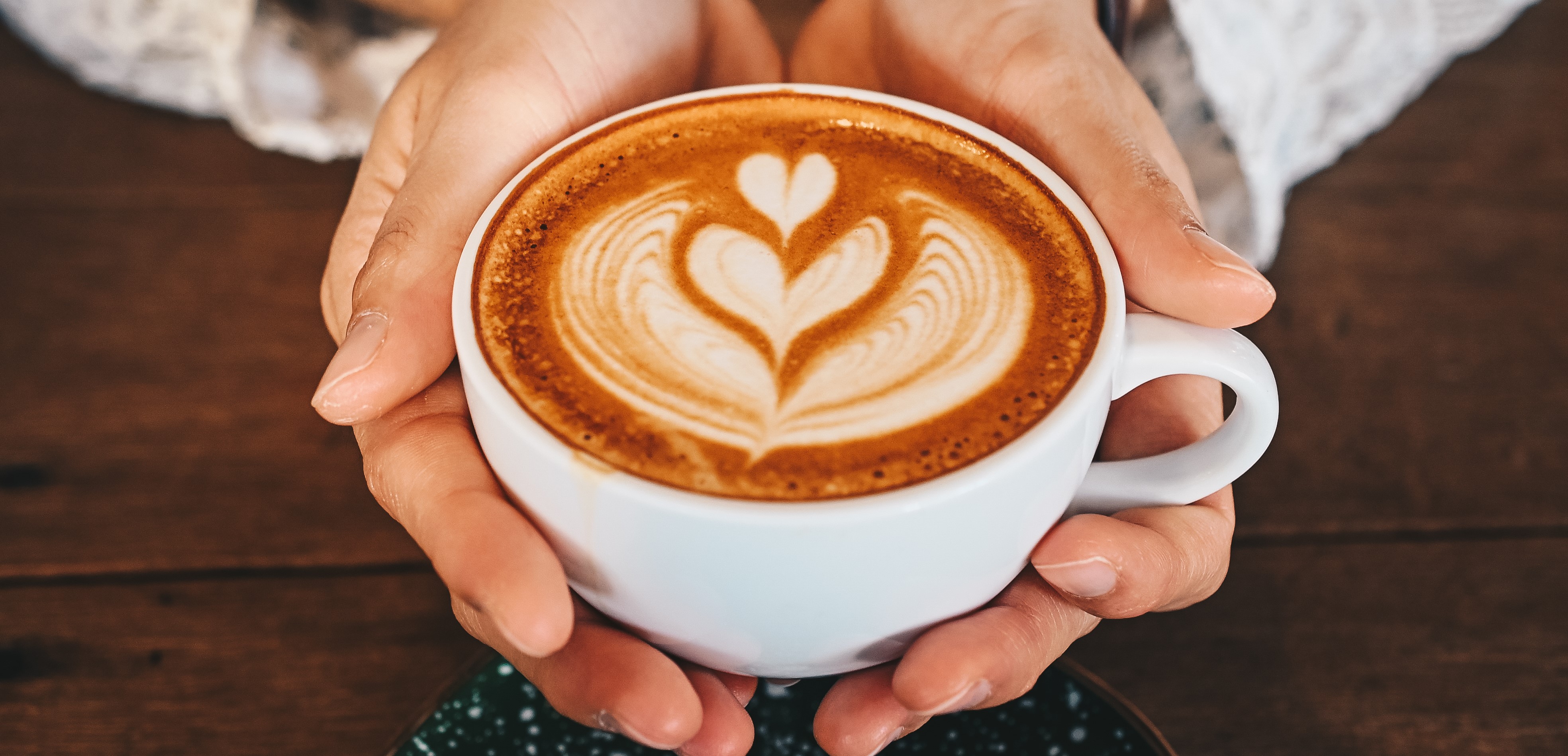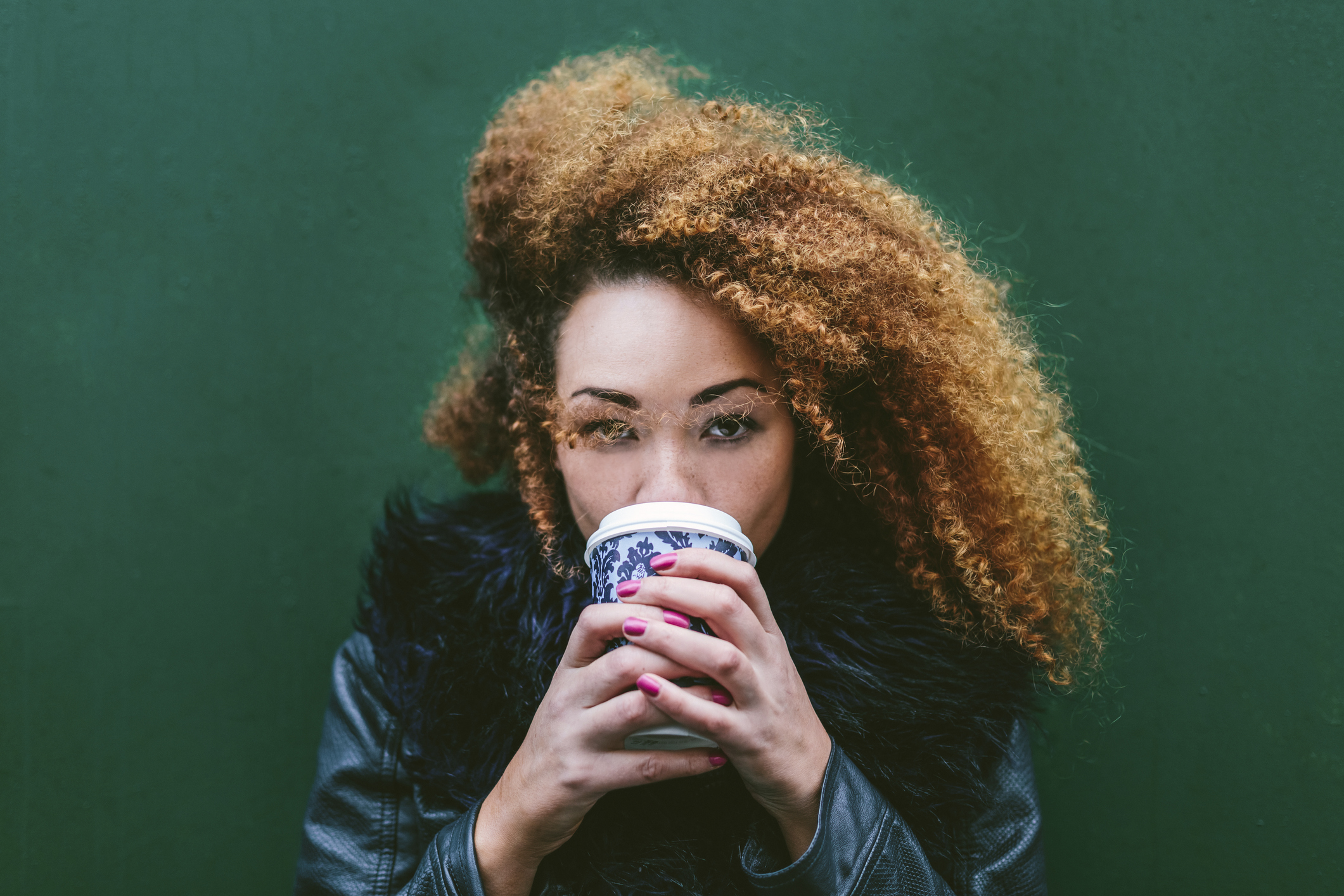The best time to drink coffee may surprise you
When's the best time to drink coffee—a.m., afternoon or after dinner?

In the workplace, coffee is almost as important as buying the best desk chairs—it keeps people awake, alert, and focused. And we're not the only ones who start our day with a cup (or three) of java first thing in the morning. Coffee is the most popular drink in the world—the world reportedly consumes more than two billion cups of the stuff every day. But is the a.m. really the best time to drink coffee?
What time is the best time to drink coffee?
Rethink your early morning cup
Coffee and mornings go together like peanut butter and jelly. But research shows that drinking coffee first thing after you wake up may hinder its energizing effects. When you wake up, cortisol, the body's stress hormone, is at its peak level. Cortisol boosts focus and alertness, and tells the body that it's time to be awake and responsive.
Cortisol levels flow with your sleep-wake cycle, peaking 30 to 45 minutes after you wake and declining as the day goes on. Caffeine found in coffee boosts cortisol levels, but if cortisol is already at its peak when you wake up, you're wasting its energy-boosting effects by drinking a cup of coffee first thing in the morning.
It's also believed that consuming too much caffeine in the morning can stress your adrenal glands and interfere with your body's natural cortisol production. Eventually, your body produces less cortisol because it's so used to the caffeine doing the work for it. That can interfere with your ability to feel alert and energized when you wake up.
- The superfood smoothie kit that's helping one editor keep her New Year's resolutions
The mid-morning java boost
Studies show that if you wait until later in the morning or early afternoon to drink coffee, you can take full advantage of caffeine's energizing effects. After your cortisol levels peak in the morning, they start declining before they rise again at noon. That window in between these two peaks may be your best opportunity to reap caffeine's benefits.
Waiting to drink your coffee until this mid-morning moment can also help prevent the jitters. You're not overloading your body with cortisol, so the caffeine will help keep your energy levels steady. Hormones, like cortisol, play an important role in those energy levels, ebbing and flowing throughout the day. Timing your caffeine consumption can help you take advantage of its energizing effects without over-stressing your body.
It's important to remember that mid-morning is different for everyone, depending on when you normally wake up. If your alarm goes off around 6:30 am, then 10-11:30 am is probably the best time to have your coffee. If you wake up earlier or later than this, adjust your drinking time accordingly.

Avoid coffee in the late afternoon or evening
If your cortisol levels peak in the morning, then it's safe to guess that the afternoon is the best time to drink your coffee. This assumption may be true, as cortisol drops in the afternoon and continues declining until the evening, but drinking coffee too late in the afternoon or early evening can interfere with your sleep.
Caffeine's stimulating effects can last up to five hours, and about half of the total caffeine you consume stays in your body after that. If you don't want your coffee-drinking habits to interfere with your sleep, avoid drinking it for at least six hours before bed.
- How to get better sleep: tips and tricks for optimum shut-eye
How much coffee is too much coffee?
It's generally safe for healthy adults to consume up to 400 mg of caffeine a day, which is about four cups of coffee. If you're pregnant or nursing, talk to your doctor about how much coffee is safe.
Drinking too much coffee can lead to anxiety, difficulty sleeping, and Jitters. If you stick to that mid-morning window for drinking your coffee, however, you shouldn't have a problem keeping your consumption in check. Savor those few cups and enjoy steady energy levels throughout the day.
The health benefits of drinking coffee
All of this talk about cortisol and the adverse effects of caffeine may have you scared to drink coffee at all, but coffee offers many benefits if you drink it at the right times and in moderation. One study from the National Cancer Institute found that coffee drinkers are less likely to die from diabetes, stroke, heart disease, and infections.
Researchers still don't know exactly why coffee reduces the risk of these health issues, but it may have something to do with the drink's high level of antioxidants. Coffee is one of the most antioxidant-rich beverages on the planet, with 200 to 500 milligrams per cup.
If you enjoy your coffee, carry on! But timing your consumption can help you take full advantage of caffeine's benefits, while reducing the strain on your adrenal glands.
The My Imperfect Life team is all about helping you navigate your world. We bring you the latest on fashion, beauty, travel and wellness so you can live life on your terms.